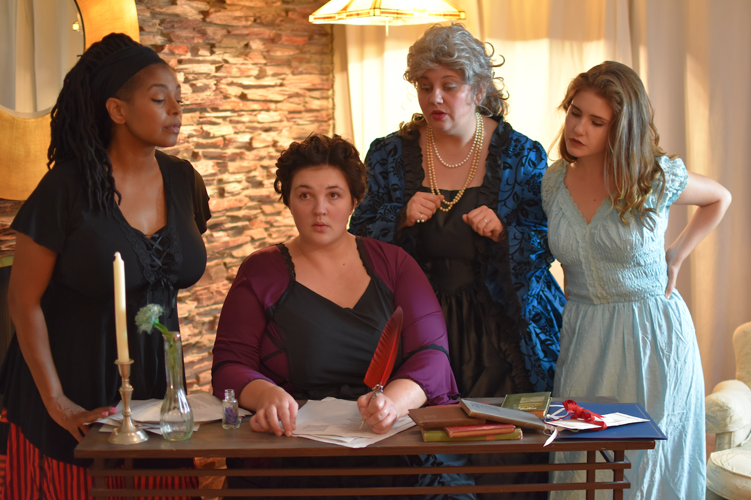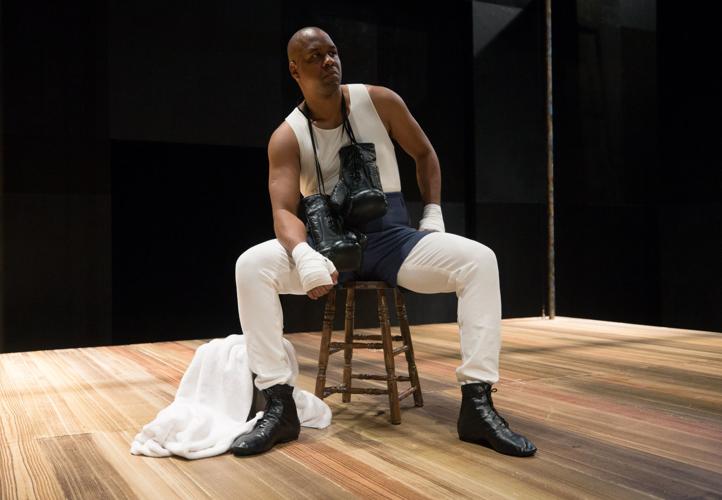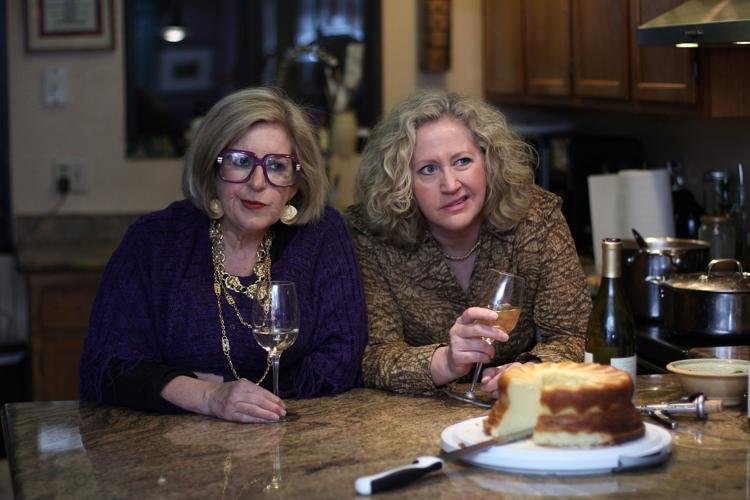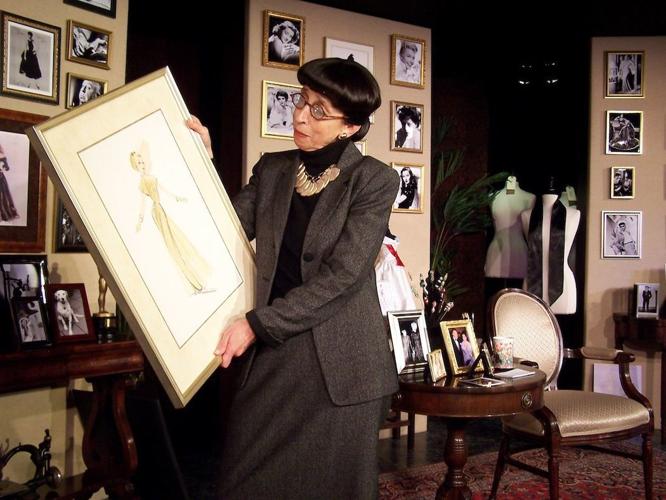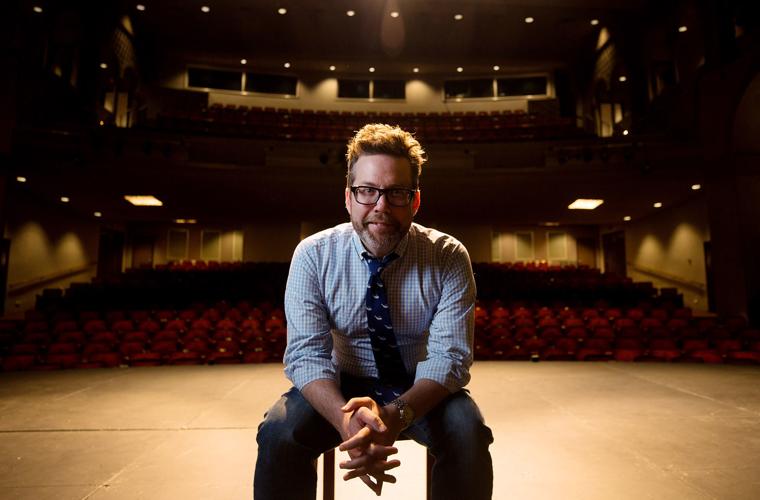Among the myriad of plays and musicals about to hit Tucson stages, a scant few will be from female authors.
And that has some in the Tucson theater community taking note and taking action.
Some theater companies are seeking out works by female playwrights. Others are bringing in more female directors and actors.
And one company, the 5-year-old Something Something Theatre Company, is making it a mission to change the rules of the male-dominated theater model.
Something Something seeks out ways to reimagine classic works to give women a bigger role and champions works new and old by female playwrights.
They lead the way in Tucson, where only eight of the 30 shows being mounted this season by Live Theatre Workshop, the University of Arizona’s Arizona Repertory Theatre, the Rogue Theatre, Arizona Theatre Company and Invisible Theater are by women.
The national average for staging shows by female playwrights reached a high of 30% last year, according to American Theatre’s annual gender and period count. In Tucson this season, three companies — Arizona Theatre Company, Live Theatre Workshop and Something Something Theatre — top that and three fall below the 30% including the Rogue Theatre, which has no production by female playwrights this season.
Making strides
“I think that there’s been a level of the patriarchy involved in terms of what gets workshopped and what gets produced and I think there’s a really false narrative around what sells,” says Sean Daniels, who was named Arizona Theatre Company’s artistic director in May, when all but two plays of the 2019-20 season had been set.
Daniels says ATC’s seasons going forward will be curated through a committee of board members, actors, members of the community and himself. Together they will read and discuss shows that they think will reflect the community’s interests.
“It’s important to have all those voices in the room as we’re choosing,” Daniels says. “I can’t pretend to speak for all these different groups, so I invite people into the room who can.”
Daniels filled out the 2019-20 season with “Women in Jeopardy” by Wendy MacLeod and the company’s season opener, “The Royale” by Marco Ramirez, which tells the story of an aspiring black boxer in the Jim Crow era.
ATC is above the national average for female playwrights this season, but since 2015, only 20% of its shows have been by women. Going forward, Daniels says gender parity will be a major focus.
“Half of the country is women, half of our programming should be by women,” he says.
At Live Theatre Workshop, artistic director Sabian Trout is nearing that same goal.
Forty-four percent of shows in LTW’s current season are by women, which is more than double the 19% by women staged at LTW since its 2014-15 season.
“We’re seeing more and more women playwrights in what has traditionally been a very male-dominated profession,” Trout says.
The four female playwrights featured in LTW’s current season are Wendy MacLeod, Molly Shannon, C. Denby Swanson and Bekah Brunstetter.
Trout says feedback from audiences helps her identify trends and choose shows from season to season.
“The main thing I’m interested in is serving our community,” she says, “I think it’s fair to say we do more plays by women playwrights because they seem to attract our audiences.”
University of Arizona theater professor Hank Stratton plans to focus more on inclusion going into his first season as artistic director of the Arizona Repertory Theatre.
“Diversity and representation are a huge part of my overall vision for the theater moving forward,” Stratton says.
This season falls short of meeting the national average, however, with just one of Arizona Repertory Theatre’s shows being by a woman. “The Wolves” by Sarah DeLappe is an all-female play centered on a high school soccer team.
“‘The Wolves’ felt like the perfect opportunity to put forward some new ideas and represent women,” Stratton says.
Last season, ART featured two shows that were written by women and featured all-female casts: “Like Heaven” by Elaine Romero and “Top Girls” by Caryl Churchill.
Stratton says he has noticed a rise in newer plays by women, which he says may be a sign of change in the industry.
“I think it’s cultural. Theater and film were such boys clubs and we are dismantling that club,” she says.
Women in charge
Susan Claassen, who has been Invisible Theatre’s managing artistic director for 45 years, seeks out shows that have never been performed in Tucson, which often includes those written by women.
Since its 2010-11 season, Invisible Theatre has featured female playwrights over 20% of the time. This season is no different, with a quarter of the longer-running plays penned by women.
Getting women on stage is another one of Claassen’s missions.
“Regardless if it’s written by a woman, we look for strong parts for women,” Claassen says.
Claassen says gender parity is becoming more prevalent in all areas of theater.
Although most IT shows are written by men, every Invisible Theatre show this season is directed by a woman.
“And decades ago there weren’t women artistic directors who were in decision-making positions,” she adds.
Over the past five seasons, the Rogue Theatre’s Cynthia Meier has devoted 20% of its seasons to shows by women.
But this season, that number is zero.
“We’ve been looking at and trying to find female playwrights or female adaptors to perform,” says Meier, who founded the Rogue with Joseph McGrath; he serves as artistic director, and Meier is managing and associate artistic director.
The biggest hurdle is that the Rogue is primarily a classical theater company mounting older repertoire that was historically written by male playwrights, Meier says.
“If we just did contemporary work, it’d be a lot easier,” she adds.
But Meier says expanding women’s roles in theater can go beyond the pen to the director’s chair and the starring roles.
“The last couple of years, we’ve done plays by male playwrights that have really significant roles for women,” Meier says, including the theater’s upcoming production of “Blithe Spirit.” Playwright Noël Coward included twice as many roles for women as men.
“We try to look at the whole picture and getting women on stage,” Meier says.
Trying something new
Joan O’Dwyer, Something Something Theatre’s artistic director, co-founded the theater company in 2015 with Esther Almazán and Whitney Morton Woodcock.
Their goal: going above and beyond gender parity for female playwrights.
“We have a different kind of a mission, and I think it’s starting to catch on,” O’Dwyer says.
All five shows in Something Something’s 2019-20 season are by women and 72% of the shows they have put on since their first year have followed suit.
As O’Dwyer and Something Something sit ahead of the curve, she thinks it might be a while before parity is reached across the country.
“Things go up and down but now everybody is starting to pay attention,” O’Dwyer says. “I’ve been around for a long time and change is slower than I ever thought it would be.”


